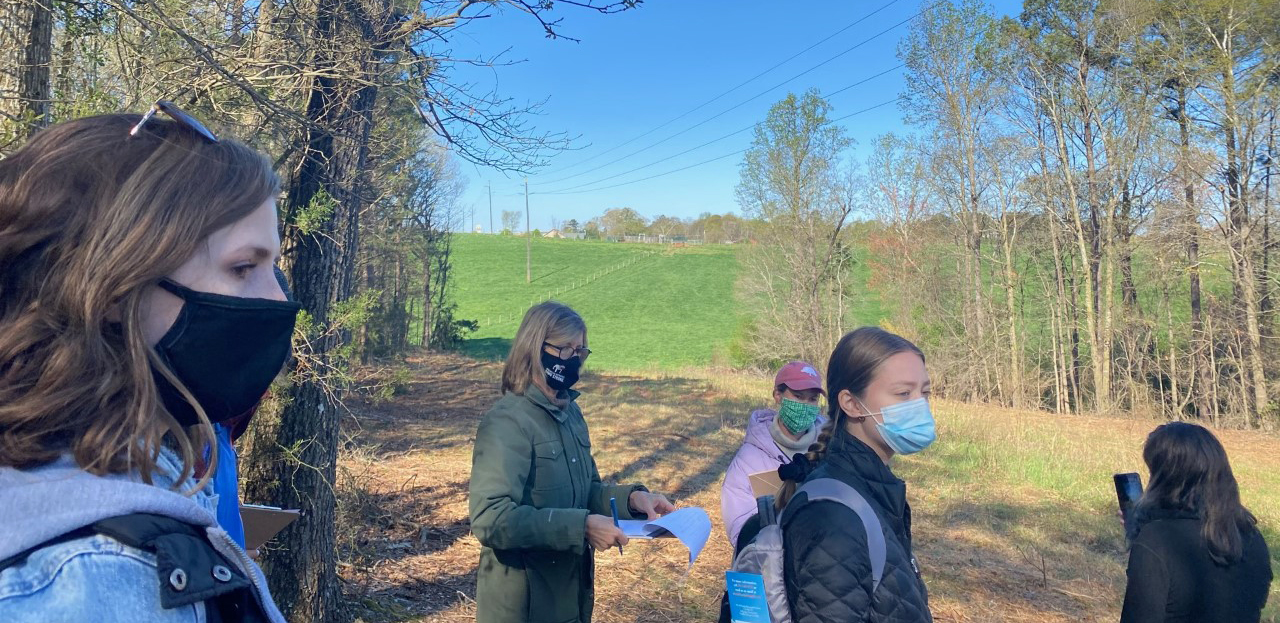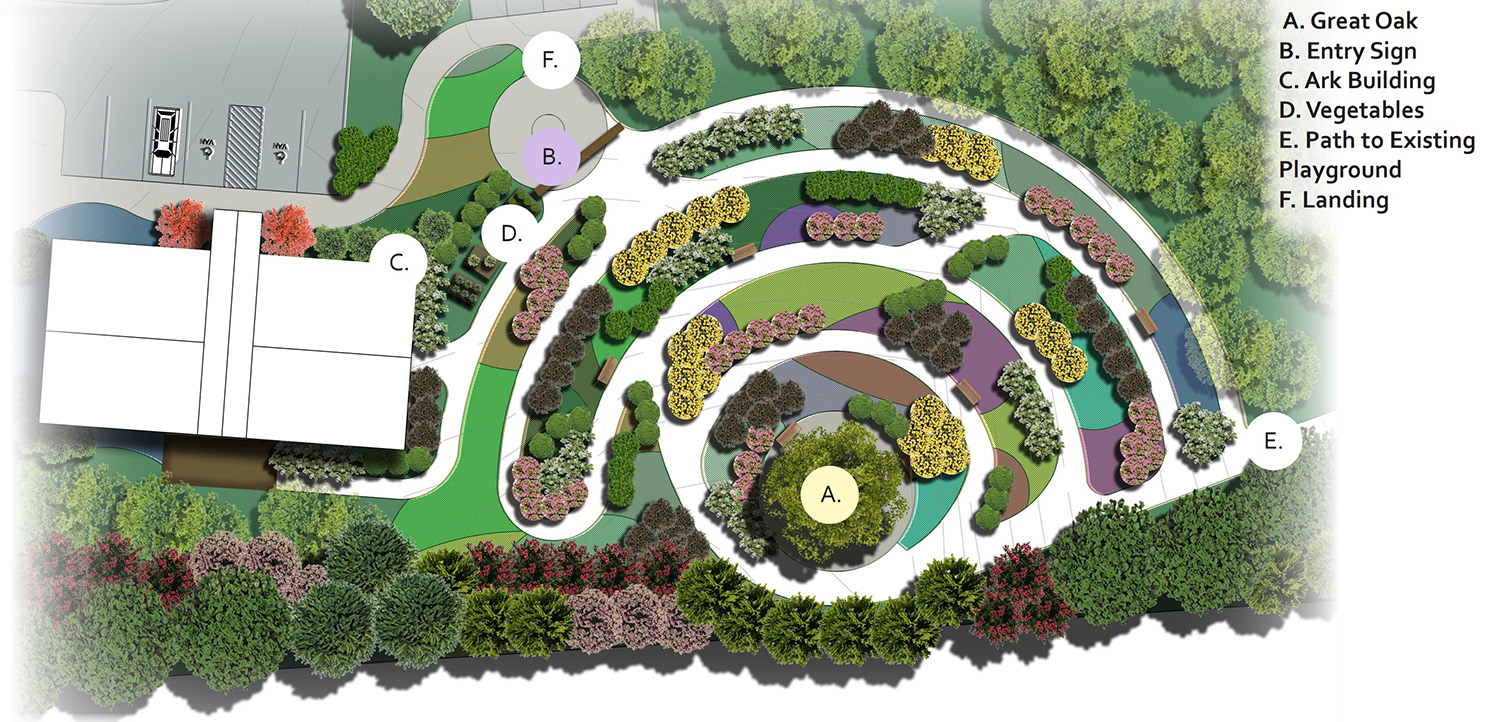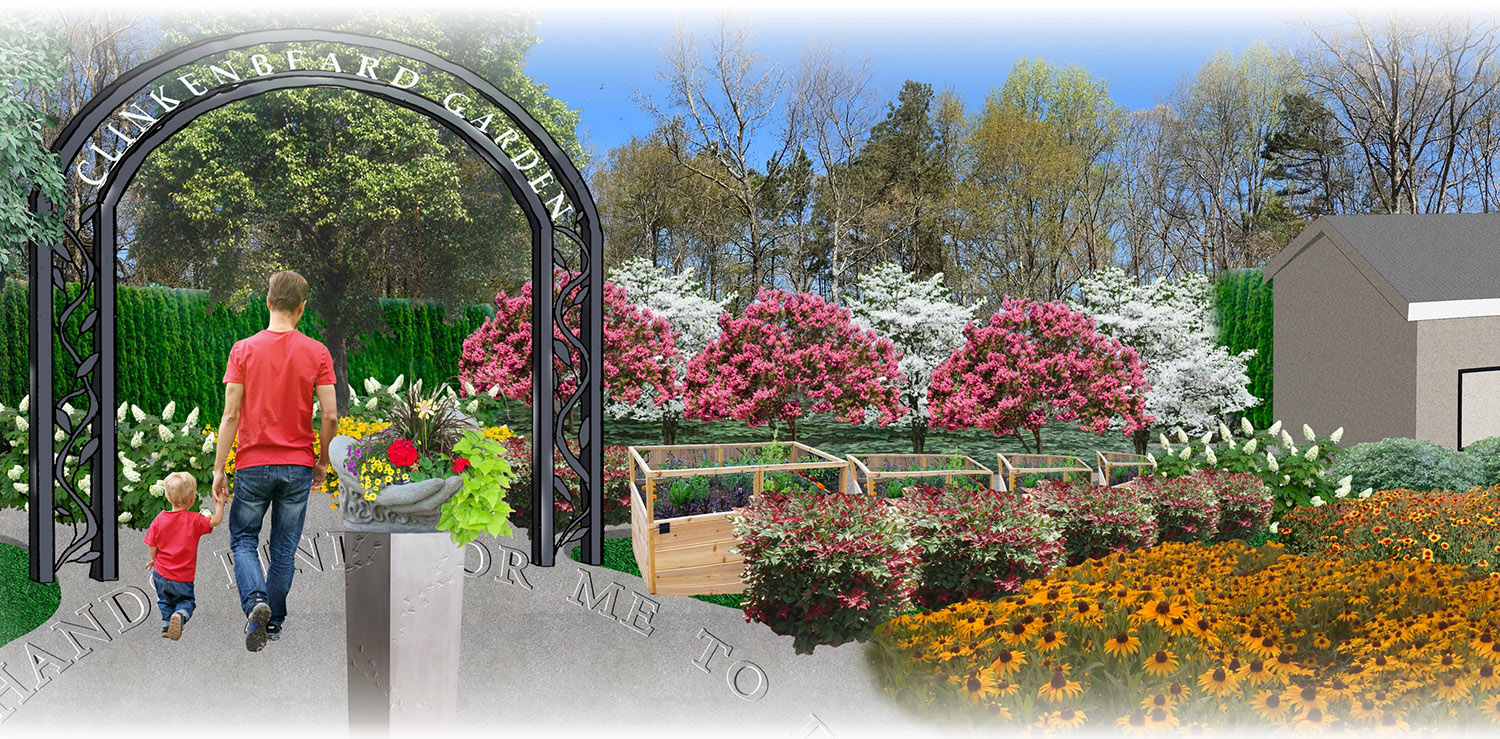CED students design healing gardens for The Ark Family Preservation Center

Professor Shelley Cannady and MLA students performing site analysis at The Ark Family Preservation Center, Spring 2021 (Photograph by Liz Swift)
The College of Environment and Design (CED) partnered with The Ark Family Preservation
Center to create a series of gardens that promote healing for families broken by destructive
forces such as drugs and alcohol. The Clinkenbeard Healing Gardens, named after the
grandmother of the center’s founder, Dr. Oxley, are envisioned to be a space where
parents and children can reconnect with each other through play and nature.
Professor Shelley Cannady’s “LAND 6020: Site Applications” course was eager to partner
on such a meaningful project. The Master of Landscape Architecture course explores
the role of the planted garden in both social and environmental contexts. Students
were encouraged to develop skills in site analysis, client communication, and design
presentation. For many of the students, this was their first opportunity to work with
a community client on a project. Students were challenged to not only think about
the elements of design but to also meet the client’s specific needs.
Four groups were assembled, and students were given a month to visit The Ark, perform
site analysis, build a base map, and use research to inform their final landscape
design. The final selected landscape design used motifs from the biblical story of
Noah’s Ark, a central tenant of The Ark’s mission statement. The Clinkenbeard Healing
Gardens will surround the newly proposed Ark Facility. The design features loose parts
playgrounds, animal sculptures, and places for families to partake in quality time.
Taking inspiration from Grandma Clinkenbeard, the garden expresses her quote “Each
day, I do what my hand finds to do” by providing interactive vegetable beds, flowers
for cutting into bouquets, and the Great Oak where clients can tie ribbon to remember
their time at The Ark. These gardens, when completed, will not only provide space
for families to overcome adversity, but will also reinforce the idea of a new beginning
and hope for the future.
When asked about the experience Ellie Hair, one of the student designers said, “I
really enjoyed working on this project because we had to research creative child’s
play areas as well as therapeutic garden design and incorporate those fundamental
findings into the final design. I am proud of the design my team produced because
it allows for the growth and development of children and adults alike and provides
safe spaces for families to reconnect.” When asked, many of the other students said
they felt the same way. For them, it was impactful to work with a meaningful organization
and to create something that will have a lasting impact on future families.
The sentiment of gratitude expressed by the students was shared by Dr. Oxley. When
asked about her time working with students, Dr. Oxley states, “I could not have asked
for a more creative and committed group of students than this class of Ms. Cannady's.
They were invested and engaged in the project from our first meeting to the last.”
The design graphics and ideas are currently being used by Dr. Oxley for fundraising
and guidance as they move into the next stages of property development. Professor
Cannady and her students wish Dr. Oxley and The Ark Family Preservation Center luck
as they move onto the next stages of their project.

Clinkenbeard Healing Garden plan, Spring 2021. Design by Ellie Hair, Morgan Henson, Savannah Terry, and Krista Campolong
 Proposed Clinkenbeard Healing Garden entrance, Spring 2021. Design by Ellie Hair,
Morgan Henson, Savannah Terry, and Krista Campolong
Proposed Clinkenbeard Healing Garden entrance, Spring 2021. Design by Ellie Hair,
Morgan Henson, Savannah Terry, and Krista Campolong
To learn more about The Ark Family Preservation Center and the Clinkenbeard Healing
Gardens visit https://thearkfamily.org/capital-campaign-giving/
Contacts: Jennifer Lewis, 706-542-6760, jmlewis@uga.edu
